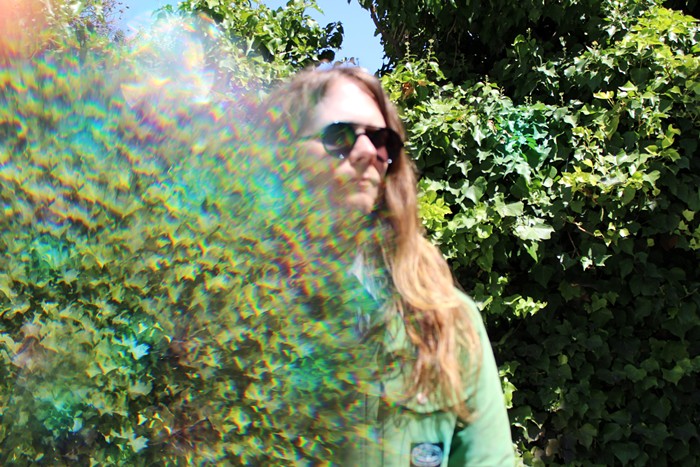When Antony of Antony and the Johnsons name-checked Rasputina in New York magazine last April as forerunners of freak folk, many readers probably found themselves asking, "Raspu-who?" Though they maintain a large cult following of devoted fans, particularly gothically inclined teenagers who appreciate the cello-rock trio's Victorian aesthetic and macabre sense of humor, Rasputina are one of the most underappreciated bands working today—and one of the most original.
There are no conventional Rasputina love songs, or break-up songs, or songs that rhyme "fire" with "desire." Instead, there are odes to leech-wifery, daydreams about dead opera stars, and waltzes describing orphanages and vampires and doll coffins. Howard Hughes makes an appearance, as do Rose Kennedy and the victims of the Triangle Shirtwaist Fire of 1911.
Lyricist and composer Melora Creager—who dreamed up the concept of the corset-wearing ladies' cello society in 1992—is the heart, soul, and muscle behind Rasputina, and has stayed with the group through several lineup changes. For Rasputina's fifth studio album, Oh Perilous World, Creager threw herself into a meticulous, long-term research project. The process involved assembling months' worth of current news events together, including accounts of volcanic eruptions, butterfly migrations, and freak snowstorms; Creager's goal was to weave scraps of them into each new song.
"I felt like a detective," Creager told me quietly over the phone, her speaking voice betraying none of the thundering vibrato she unleashes while singing. "My eyes were getting opened to all these stories. It's one big puzzle. I thought, if I read all the news that there is, I'd figure it out." She paused, laughing. "Which is not really true or possible, but I enjoyed doing it."
One of the stories Creager explored involved the history of Pitcairn Island, a remote island community in the South Pacific. After a group of English sailors settled on Pitcairn in the aftermath of the famous Bounty mutiny of 1789, the islanders gradually fell into a near-civil war that claimed the life of the Bounty's first mate and lead mutineer, Fletcher Christian.
"A lot of people know the mutiny on the Bounty from the movies, but not many people know about what happened after, which is such a mess, and very interesting," says Creager. This post-mutiny period inspired the narrative for several songs on Oh Perilous World, including "Cage in a Cave," which describes Christian's paranoid last days.
"As I understand it, he was really depressed," Creager says sympathetically. "What did he do when he was all alone with those guys that were fighting? That intrigued me—somebody that was really independent and would stand up and revolt, and then be remorseful and regret it."
Oh Perilous World also gives Creager a chance to push at the edges of Rasputina's sound, adding flute, piano, and dulcimer to the trusted combination of cellos and drums. Creager's trademark vibrato goes unused here more often than on previous records, but there are still plenty of vintage Raspy moments: the go-for-broke electric cello crunch of "Draconian Crackdown" and "Choose Me for Champion;" Creager's arresting spoken-word breakdown at the center of "Incident in a Medical Clinic;" the delicate bow work of "The Pruning." "Oh perilous world," she sings on that closing track. "You're showing every sign of losing your heart." Luckily for us, Rasputina are showing every sign of keeping theirs.


















